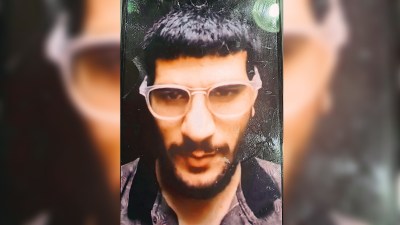Kaunain Sheriff M is an award-winning investigative journalist and the National Health Editor at The Indian Express. He is the author of Johnson & Johnson Files: The Indian Secrets of a Global Giant, an investigation into one of the world’s most powerful pharmaceutical companies. With over a decade of experience, Kaunain brings deep expertise in three areas of investigative journalism: law, health, and data. He currently leads The Indian Express newsroom’s in-depth coverage of health. His work has earned some of the most prestigious honours in journalism, including the Ramnath Goenka Award for Excellence in Journalism, the Society of Publishers in Asia (SOPA) Award, and the Mumbai Press Club’s Red Ink Award. Kaunain has also collaborated on major global investigations. He was part of the Implant Files project with the International Consortium of Investigative Journalists (ICIJ), which exposed malpractices in the medical device industry across the world. He also contributed to an international investigation that uncovered how a Chinese big-data firm was monitoring thousands of prominent Indian individuals and institutions in real time. Over the years, he has reported on several high-profile criminal trials, including the Hashimpura massacre, the 2G spectrum scam, and the coal block allocation case. Within The Indian Express, he has been honoured three times with the Indian Express Excellence Award for his investigations—on the anti-Sikh riots, the Vyapam exam scam, and the abuse of the National Security Act in Uttar Pradesh. ... Read More
Sabarimala verdict: How majority view echoes dissent of 2018
The Supreme Court has deferred its decision on review of 2018 Sabarimala verdict until a larger Bench examines broader issues such as essentiality of religious practices and constitutional morality.
 Justice Indu Malhotra. (Express File Photo: Tashi Tobgyal)
Justice Indu Malhotra. (Express File Photo: Tashi Tobgyal)
The Supreme Court has deferred its decision on review of 2018 Sabarimala verdict until a larger Bench examines broader issues such as essentiality of religious practices and constitutional morality.
‘Far-reaching ramifications’
In September 2018, Justice Indu Malhotra said that issues in the case would have “far reaching ramifications… for all places of worship of various religions, which have their own… practices… which may be considered… exclusionary”.
On Thursday, the majority observed that the question of the constitutional validity of restricting entry of women in a place of worship also arises in respect of a Dargah/mosque and Agyari.
Article 14 vs Article 25
Last year, Justice Malhotra had held that the equality doctrine under Article 14 did not override the fundamental right guaranteed by Article 25 to freely practise faith.
On Thursday, the court said the larger Bench will have to examine the “interplay between the freedom of religion under Articles 25 and 26… and other provisions…, particularly Article 14”.
Constitutional morality
Justice Malhotra had said that constitutional morality implies harmonisation of fundamental rights, which include right of every individual or religious denomination to practise their faith in accordance with the tenets of their religion, irrespective of whether the practice is rational or logical.
On Thursday, the majority said: “…‘Morality’ or ‘constitutional morality’ has not been defined in the Constitution. Is it overarching morality in reference to preamble or limited to religious beliefs or faith? There is need to delineate the contours of that expression…”
Sabarimala 2018 judgment | Justice Indu Malhotra dissents — Can’t invoke rationality in religion






- 01
- 02
- 03
- 04
- 05

































